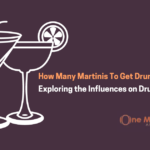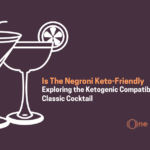Tequila is a liquor that is made from the blue agave plant. It is often consumed in shots and is a popular drink in Mexico. But what many people don’t know is that tequila can be either a depressant or stimulant, depending on how it is consumed.
Is tequila a depressant or stimulant? The answer is both. It all depends on how much you drink and your individual tolerance level. Consuming too much tequila can have a depressant effect while drinking in moderation can have a stimulant effect.
In this blog post, you will learn whether tequila is a stimulant or depressant, its effect on our brain and if it’s good for you.
About Tequila
Tequila is a distilled spirit manufactured from the fluids of the Weber blue agave plant, which have been fermented. It’s one of the world’s most popular spirits, although it’s most popular in the United States and Mexico.
Tequila can be drunk in a variety of ways, including in drinks like the margarita, but it’s most known for its use in shots. Tequila is a special form of liquor since it can only be made in certain locations of Mexico to be deemed authentic.
There are different types of tequila, such as Blanco (white), reposado (rested), and Anejo (aged). The aging process determines the flavor and color of the liquor.
Tequila is often enjoyed by people who like strong drinks, but it can also be consumed in moderation to provide a stimulant effect. When too much is consumed, however, it can lead to a depressant effect. This happens because alcohol slows down brain function and impairs judgment.
LEARN MORE: Is Buchanan A Tequila Or Whiskey?
Is Tequila A Depressant?
Any medicine that affects neurotransmission and reduces brain activity is referred described as a “depressant.” Barbiturates, benzodiazepines, cannabis, opiates, and, by far, the most popular, ethanol, are among these substances.
Every alcoholic beverage we consume contains ethanol as the consumable alcohol. It’s the chemical that “uplifts our spirits” after a couple of drinks. However, while ethanol may make you feel cheery at first, it is essentially a depressant of the central nervous system.
So, any liquor that has ethanol as its primary alcohol will have a depressant effect on the CNS. This is because ethanol inhibits GABA receptors in the brain, which results in reduced brain activity.
LEARN MORE: The Science of Tequila: Why Does It Burn?
Is Tequila A Stimulant?
Yes, tequila can also have a stimulant effect. This happens when it is consumed in moderation and the ethanol level is not too high. This moderate consumption will stimulate the production of dopamine, which is responsible for feelings of pleasure.
This happens because ethanol stimulates the production of dopamine, which is responsible for feelings of pleasure. Dopamine is also responsible for the “high” we feel when we consume substances like cocaine and methamphetamine. However, unlike those drugs, dopamine released by moderate alcohol consumption is not addictive.
LEARN MORE: Where Is Tequila Made in Mexico?
Tequila’s Influence On Your Brain
Tequila’s pleasant dose of alcohol is met with fanfare by the brain, at least by you. The medicine has an immediate effect on the neurons and receptors in the brain.
Neurons are the brain’s “worker bees.” They’re in charge of transmitting data and signals throughout your brain. Almost every single process in your body is controlled by the information they send. Alcohol has an inhibitory effect on these neurons, which means it blocks and suppresses their receptors, which causes sedation.
This sedation (or depression) of brain function causes significant chemical changes in the body, including increased dopamine and serotonin (happy neurotransmitters) release and decreased glutamate activity.
Glutamate is a critical molecule that nerve cells use to communicate with one another and that the brain requires to function properly. So, as you might expect, if your brain has more chemicals that make you happy and less of what it needs to communicate with itself, it won’t work as well.
These all chemical changes that occur when you drink alcohol, including those caused by tequila, can have a significant impact on your mood and behavior.
LEARN MORE: Where Is Hornitos Tequila Made?
Is Tequila Good For You
Depending on who you ask, tequila is either good for you or bad for you. There has been scientific and pseudoscientific research conducted to try to determine this. Tequila, according to some, can help with anything from weight loss to bone strength.
However, there is no conclusive evidence that tequila is good for you, and there are health hazards that suggest otherwise. The most serious health danger is alcoholism, which can result in a variety of issues – physical, emotional, mental, and interpersonal.
Tequila can also lead to liver damage, pancreatitis, and various forms of cancer. Additionally, it can impair judgment and increase the risk for accidents.
Though there are some risks, some people think that drinking tequila in moderation may have some health benefits like increased bone density, cardiovascular health, reduced risk of stroke and dementia, and protection against cancer.
LEARN MORE: What is Silver Tequila?
Conclusion
Apart from the excitement, tequila is a terrific addition to any party when consumed responsibly. It has a complex and interesting effect on the brain that can alter mood, cognition, and behavior. Though there are some risks associated with drinking tequila, in moderation it may have some health benefits.









